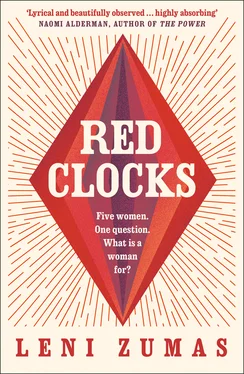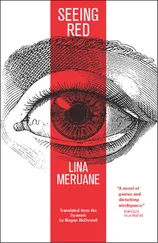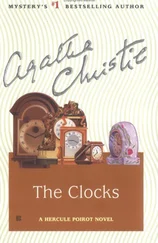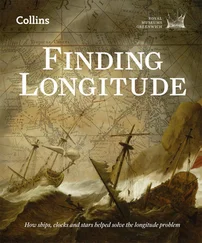“This year’s parents,” says Pete, “are even more racist than last year’s. One guy goes, ‘I’m glad my child is finally studying math with someone of your persuasion.’”
“Calm your yard, Pete-moss,” says Didier.
“I have a yard?”
“It’s in your pants, nestled like a teeny mouse.”
“How very white of you to change the subject away from model-minority stereotypes.”
“Hey, Roosevelt, are you using only white sperm donors out of racism?”
“Didier, God, ” says Susan.
“White is the state color of Oregon,” says Pete.
“The kid is already going to feel weird about his paternity situation,” says the biographer, “and I don’t want to add to the confusion.”
“Once you have that kid, you won’t be able to take a dump by yourself. And you’ll become even less cool than you are now. As they say, ‘Heroin never hurt my music collection, but parenthood sure has!’”
“No one says that,” says Susan, reaching for another roll.
“I once did a research paper,” says Didier, “on the history of words for penis, and ‘yard’ was a preferred term until a couple of centuries ago.”
“Was that considered a research topic at your wattle-and-daub college?” says Pete.
“Not wattle and daub,” says Susan, “so much as frosted glass block and drive-through window.”
“What’s wattle and daub?” says Bex.
Didier scratches his neck. “Even if it had been a community college, which it was not, so what? I mean, literally, meuf, why would it matter?”
Pete shouts, “Why does everyone say ‘literally’ so much these days?”
“‘When I lay with my bouncing Nell,’” recites Didier, “‘I gave her an inch, but she took an Ell: But … it was damnable hard, When I gave her an inch, she’d want more than a Yard.’ Ell meant the minge, by the way.”
“Yet he can’t remember the name of the kids’ pediatrician,” says Susan.
Didier gives his wife a long look, rises from the table, heads for the kitchen.
He returns with a butter dish.
“We don’t need butter,” says Susan. “Why did you get out the butter?”
“Because,” he says, “I want to put some butter on my potatoes. They happen to be a little dry .”
“Daddy,” says Bex, “your face just looked like a butt.” Giggles. “Don’t be a buttinski, you buttinski!”
“Use your NPR voice, chouchou, ” says Didier.
“I hate NPR!”
“What Daddy means is you need to speak more quietly, or you’re leaving the table.”
Bex whispers something to her brother, then counts to three. “AAAAAAHHHHHH!” they roar.
“That’s it,” snaps Susan. “You’re done. Leave the table.”
“But John’s not done! If you don’t feed us it’s, um, it’s child abuse .”
“Where did you hear that term?”
“Jesus,” says Didier, “she prolly got it from TV. Relax.”
Susan closes her eyes. For a few seconds, nothing moves. Then her eyes open and her voice comes out placid: “Let’s go, sprites, time for bath. Say good night!”
Pete and Didier keep opening beers and ignoring the biographer. Their conversation topics include European soccer, artisanal whiskey, famous drug overdoses, and a multiplayer video game whose name sounds like “They Mask Us.” Then Didier, suddenly remembering her, says: “Instead of driving a million miles to Salem, why don’t you just go to the witch? I saw her the other day, waiting outside the school. At least I think it was her, although she looks less witchy than most of the girls at Central Coast.”
“She’s not a witch. She’s—” Tall, pale, heavy browed. Eyes wide and pond-green. Black cloth pinned around her neck. “Unusual.”
“Still,” says Didier, “worth a try?”
“Nah. She’d give me a bowl of tree bark. And I’m already in massive debt.” The biographer isn’t sure why she’s lying. She’s not ashamed of her visit to Gin Percival.
“All the more reason to avoid single motherhood,” says Didier.
Is she ashamed?
“So only couples in massive debt”—she raises her voice—“should have kids?”
“No, I just mean you have no idea how hard it’s going to be.”
“Actually I do,” she says.
“You very much don’t. Look, I’m the product of a single mother.”
“Exactly.”
“What?”
“You turned out fine,” says the biographer.
“You’re human evidence,” adds Pete.
“Wait’ll it’s four a.m.,” says Didier, “and the kid’s puking and shitting and screaming and you can’t decide if you should take him to the emergency room and there’s no one to help you decide.”
“Why would I need someone to help me decide?”
“Okay, what about when the kid has a guitar performance in assembly and you can’t be there because of work and everyone laughs at him for crying?”
The biographer does the tiny violin.
Didier pats his shirt pocket. “Hell are my smokes? Pete, do you—?”
“I got you, brah.” They head out together.
She thinks to start clearing the table—this would be a good thing to do, a courteous and helpful thing—but stays in her chair.
Susan, in the doorway: “They’re finally down.” Her narrow face, edged by blond waves, pulses with anger. At her kids for not settling faster? At her husband for doing nothing? She goes to hover behind a chair, surveying the mess of the table. Even angry she is shining, every piece of dining-room light caught and smeared across her cheeks.
The males clomp back in, smelling of smoke and cold, Didier laughing, “Which is what I told the ninth-graders!”
“Classic,” says Pete.
Susan reaches for plates. The biographer gets up and hefts the roast pan.
“Thanks,” says Susan, to the pan.
“I’ll wash.”
“No, it’s fine. Can you get the strawberries out of the fridge? And the cream.”
The biographer rinses, pats, and de‑tops.
“I bought those specially for you,” says Susan.
“In case I need some folic acid?”
“Are you—?”
“Another insemination next week.”
“Well, distract yourself if you can. Go to the movies.”
“The movies,” repeats the biographer. Susan has a knack for commiserating with suffering she hasn’t suffered. Which doesn’t feel like compassion or empathy, but why not? Here is a friend trying to connect over a trouble. But the effort itself is insulting, the biographer decides. The first time Susan got pregnant, it wasn’t planned. The second time (she told the biographer) they’d only just started trying again; she must be one of those Fertile Myrtles; she’d expected it to take longer, but lo and behold. If she told Susan about seeing the witch, Susan would act supportive and serious, then laugh about it behind the biographer’s back. With Didier. Oh, poor Ro—first she’s buying sperm online, now she’s tramping into the forest to consult a homeless woman. Oh, poor Ro—why does she keep trying? She has no idea how hard it’s going to be.
On her teacher’s salary she will die holding notices from credit-card agencies, whereas Susan and Didier, who also live on a teacher’s salary, are debt-free, as far as she knows, and pay no rent. Bex and John no doubt have trust funds set up by Susan’s parents, fattening and fattening.
“The comparing mind is a despairing mind,” says the meditation teacher.
Well, the biographer will figure out how to send her baby who does not exist yet to college. If the baby chooses to go to college, that is. She won’t push the baby. The biographer herself liked college, but who’s to say what the baby will like? Might decide to be a fisherperson and stay right here on the coast and eat dinner with the biographer every night, not out of obligation but out of wanting to. They will linger at the table and tell each other how the day went. The biographer won’t be teaching by that point, only writing, having published Mínervudottír: A Life to critical acclaim and now working on a comprehensive history of female Arctic explorers; and the baby, tired from hours on the fishing boat but still paying attention, will ask the biographer intelligent questions about menstruating at eighty degrees below zero.
Читать дальше











